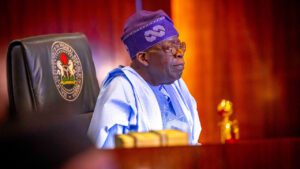Enhancing digital-agecommunication for corporate reputation and profitability(2)
By Goke Ilesanmi
Last week, we said communication is the process by which information is shared between two people or organisations, or among individuals or organisations, etc. We added that we have four communication skills and they are listening, reading, speaking and writing.
We said one thing that is very critical to effective communication is proficient application of language. We added that research shows that the problem of Nigerian English usage is depriving many organisations and individuals in Nigeria of the opportunity of enhancing their business or career prospects globally due to communication breakdown.
We examined some of the characteristics of Nigerian English such as local creativity, negative language transfer and lack of knowledge of dictionary abbreviations.We said many dictionary users in Nigeria find it difficult using the dictionary effectively, especially the grammatical aspect, due to lack of knowledge of most of abbreviations used.
Nigerian English features and digital-age effects
Lack of knowledge of dictionary symbols or abbreviations: …Examples of these abbreviations are “n” for noun; “v” for Verb; “adv” for Adverb; “adj” for Adjective; “pron” for Pronoun, etc.
The abbreviation “adj” is placed against a word like “Mediocre” to show it is an adjective. But lack of knowledge of what the abbreviation “adj” means makes most Nigerians use the word as a noun by saying “You are mediocres”. The correct usage is “You are mediocre people”, “You are a mediocre person” or “You are mediocre”. You cannot add an “s” or “a”to the last example. It is like saying “You are brilliant”.
Also lack of knowledge of dictionary symbols has led to ignorant usage of American English words in place of British English words. For instance, the short form “BrE” means British English while “AmE” means “American English”. “AmE” is written against the word “Gotten” with the “pp” symbol to show that it is the American English past participle of the verb “Get”. “BrE” is written against the word “Got” with a “pp” symbol to show that it is the British English past participle of Get”. But many Nigerians ignorantly say “I have gotten” instead of the British English version “I have got.”
Also the word “Presently” has two meanings. The first meaning is “Very soon”. This has the symbol “BrE” (British English) against it. The second meaning is “Now” which has the symbol “AmE” (American English) against it. This means it is wrong to use “Presently” to mean “Now” in British English. Rather, we use “At present” or “Currently” in British English. If you tell your British customer or prospect that you “presently” have some needed products in stock, you have lost business because you are ignorantly telling him or her that you will have the products very soon.
Symbols or short forms such as “[C]”, “[U]”,and “[C,U]” are placed against nouns (represented by”n”) in the dictionary to reflect their grammatical behaviour or status. Thus, when [C] is placed against a noun, it means the noun is countable. When [U] is used, it means the noun is uncountable. However, when “[C,U]” symbol is placed against a noun that has a single meaning, it means it can be used both in a countable and uncountable sense. When the symbol [C,U] is placed against one of the meanings of a noun having more than a meaning, that is, a polysemous word, it means the noun can be used either way in that situation.
The word “dispensation” is anexample of a polysemous word having the three-fold grammatical attribute of “[C]”, “[U]”,and “[C,U]”. The word has meanings with “[C]” and “[U]” separately, in addition to “[C,U]”. Lack of knowledge of these symbols or abbreviations makes a lot of people pluralise uncountable nouns such as “potential”, “fallout”, “legislation”, “equipment”, etc., despite the placement of the symbol “[U]” against them in the dictionary.
Therefore, the priority should be to first check if the symbol against a noun is “[C]”, “[U]”,or “[C,U]” in the dictionary. Or check the symbol put against the meaning that matches the one you are looking for if it is a noun that has more than a meaning, so as to ensure correct usage. It is after checking this usage guide that you can check the meaning of a word.
For instance, when the word “talent” means “a natural ability to do something well”, the short form or symbol placed against this first meaning in the “Longman Dictionary of Contemporary English” is “[C,U]”, meaning alternative usage. That is, you can use it in both countable and uncountable ways in that context.
The second meaning of “talent” in the dictionary is “a person or people with a natural ability or skill”. The short form or symbol placed against this second meaning is “U”. This means it is uncountable in this sense. In fact, the dictionary illustration is, “Britain’s footballing talent”. So it means when the word “talent” refers to human beings, it is uncountable. The third meaning of “talent” is “sexually attractive people”. This meaning also has the symbol “U”. This means it is uncountable too, despite referring to people.
Meaning is nothing without knowledge of grammatical usage. As already said, many people know the meaning of the word “mediocre”, yet they wrongly use it as a noun and pluralise it (“mediocres”) even when the symbol against it in the dictionary is “adj”, that is, it is an adjective and therefore cannot be pluralised.
Wrong redeployment of meanings: This is another feature of Nigerian English. It is about misinterpreting the original meanings of the existing words of English Language. Examples of words that have their meanings wrongly redeployed in Nigeria are “Do-or-die”, “Tout”, “Dowry”, “Minerals”, etc. “Do-or-die” is a positive idiom that means “Strong determination” (check a dictionary). “Tout” means “Marketer” or “Canvasser” not “Hooligan”. “Dowry” basically refers to the money and other property that a bride gives to the bride-groom not money that a bridegroom pays on the bride as wrongly used in Nigeria. Even though the latest edition of “Oxford Advanced Learner’s Dictionary” now accommodates and recognises our wrong usage, that is not the standard meaning of the word “Dowry”.
We wrongly use “Minerals” for “Soft drinks”; “Hot drinks” for “Hard drinks”; “Machine” for “Motorcycle”. “Drainages” in place of the correct one “Drains”. Most Nigerian speakers of English wrongly say “Send-forth” instead of “Send-off”, probably because the adverbial particle/preposition “off” is considered negative. I wonder why we have not changed jamb “cut-off” mark to “cut-forth” mark! Similarly, we use “Do-or-die” negatively probably because of the negative word “Die”.
Overgeneralisation of rules of English:Overgeneralisation of rules of English is another feature of Nigerian English. This is making us to commit errors daily. For instance, because the verb “Realise” has the noun “Realisation”, we often overgeneralise the rule by wrongly thinking the noun from the verb “Vandalise” is “Vandalisation” instead of the correct noun “Vandalism”. Also because we have the idiomatic expression “The best/worst is yet to come”, we overgeneralise this idiom when we are using “Yet” with “To”-infinitive verbs in other situations. We wrongly say “I am yet to go there” instead of “I have yet to go there”. Please check your dictionary. All these wrongly-used words naturally create communication breakdown, negative perception and loss of business in this digital age.
To be continued
GOKE ILESANMI (FIMC, CMC), CEO of Gokmar Communication Consulting, is an International Platinum Columnist, Professional Public Speaker, Career Mgt Coach and Certified Mgt Consultant. He is also a Book Reviewer, Biographer and Editorial Consultant.
Tel: 08055068773; 08187499425
Email: gokeiles2010@gmail.com
Website: www.gokeilesanmi.com.ng




